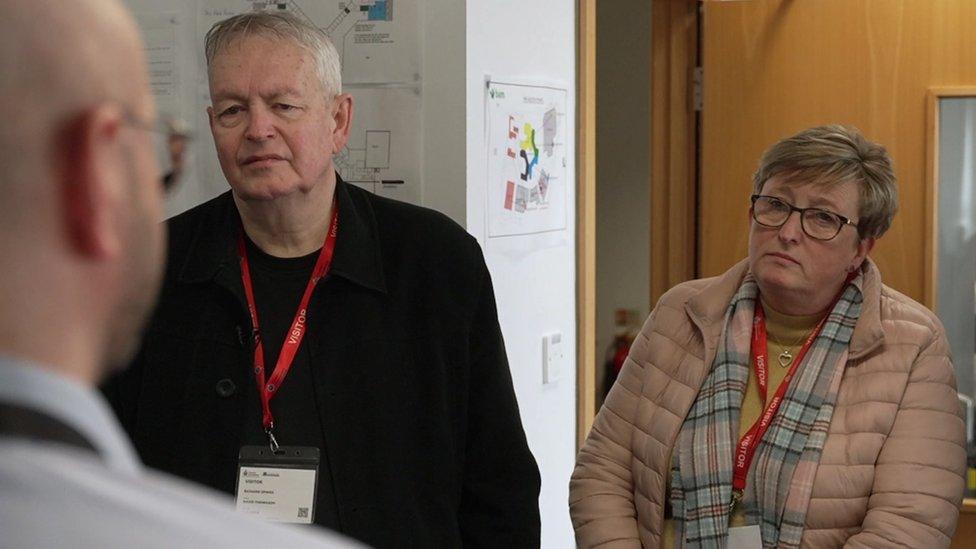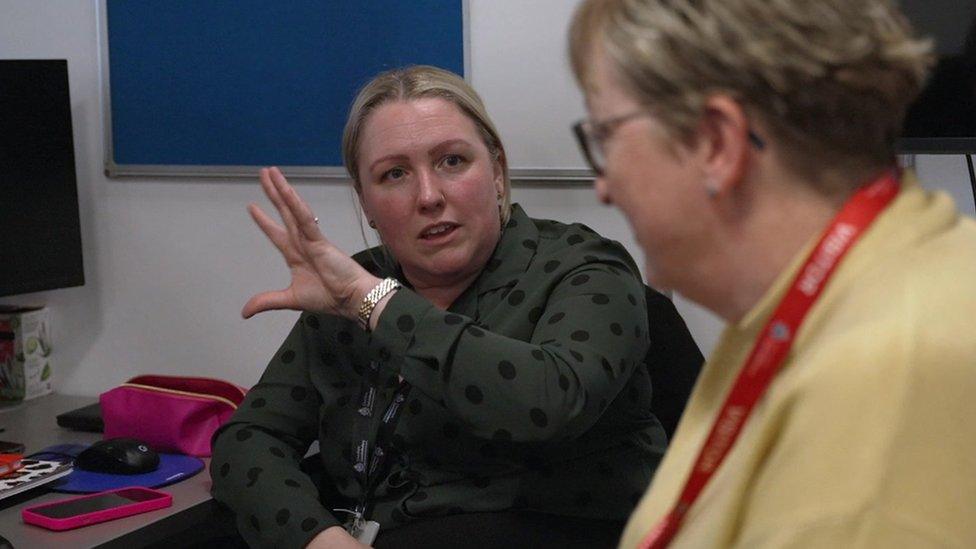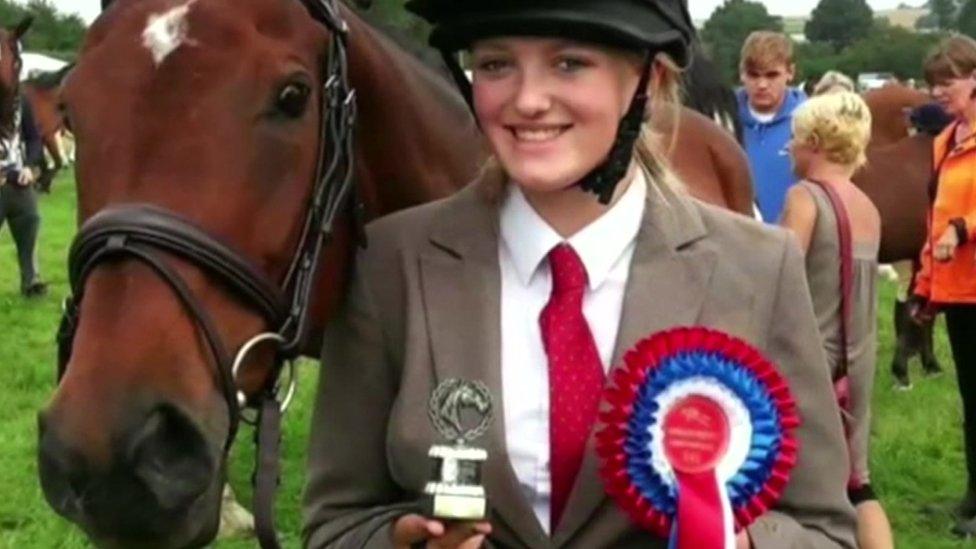Stalking: Parents of Gracie Spinks visit Cheshire police unit
- Published

Gracie Spinks, 23, was murdered in Duckmanton in Derbyshire on 18 June 2021
The parents of a woman killed by her stalker say they "finally" feel supported after visiting a dedicated police unit.
Gracie Spinks, 23, was murdered in 2021 by a former colleague who then killed himself.
Her parents, Richard Spinks and Alison Ward, have since campaigned for police forces to have improved training and procedures to deal with stalking.
They visited Cheshire police's Harm Reduction Unit (HRU) to see its work.
"I just wish [Gracie] had this police force," Mrs Ward said. "We finally feel like we're supported by people who want the exact same things as us."
'The same mistakes'
Cheshire HRU was set up in 2015 and sees police officers work with NHS psychologists, healthcare workers, probation officers and victims advocates in the same office. It treats stalking as a public health issue.
In January, it secured the first stalking protection order of its kind, requiring the stalker to wear an ankle tag that alerts police and the victim if they get within a certain distance.
Mr Spinks said: "It's been a big eye-opener to see it up and running, I'm so proud of them all. They're so passionate about what they do.
"Change is not something that will happen overnight but we will not let it drop. We will keep pushing and pushing. We want this level of service across the board."
Department head Det Sgt David Thomason said: "Richard and Alison shouldn't have to be here. I'm pleased they are but it's a bittersweet thing.
"They're saying what victims, families, people who have lost children over the years have been saying for decades. It's the same mistakes, the same victim blaming, the same apathy. That's why we're so determined to make change."

Richard Spinks and Alison Ward have welcomed the work being done by Cheshire police
Following the inquest into Miss Spinks' death, Derbyshire police admitted it had "failed" her.
Several months before her death, she had made a report about Michael Sellers being "obsessed" with her.
Two dog walkers also found a bag of weapons belonging to Sellers, but police did not investigate the bag and instead treated it as "found property".
Derbyshire's Deputy Chief Constable Simon Blatchly said the force had made significant improvements to how it investigates stalking and supports victims, including training for all staff and the introduction of a civil orders team to manage and apply for Stalking Protection Orders.
He said: "Through the role of the stalking coordinator - who reviews every stalking incident - early identification of the most serious cases is now helping ensure those who are most at risk are supported and protected quickly and effectively.
"Victims are also supported by two stalking advocate roles who help victims report offences to the police, support them through the criminal justice process and ensure they have safety plans and home security."
'Space to vent'
Miss Spinks' parents are campaigning for Gracie's Law, calling for all police forces to be required to employ independent stalking advocates (ISAs). ISAs provide help and support for victims throughout the process of reporting a crime and any legal proceedings that follow.
Mrs Ward said the family needed to push forward with their campaigning work "for our own sanity".
Victoria Lowry, one of the ISAs at Cheshire HRU, said: "I'm not saying that having me in Gracie's area would have saved her, but it would have given her space to vent.
"I am not a police officer, I am someone to talk to, to explain steps to keep you safe. We know what we're talking about and can guide you through the process."

Advocate Victoria Lowry works with victims in the Cheshire force area
'Stakes are high'
The coroner who led the inquest into Miss Spinks' death said there was a "postcode lottery" of support available for stalking victims.
Assistant coroner Matthew Kewley said he was "reassured" to hear Derbyshire police had a stalking advocate in place but was concerned by a "lack of consistency and availability of stalking advocates to victims of stalking across the UK".
A BBC Breakfast investigation found that of 40 forces who responded, 14 had a stalking advocate in place. Twenty-three did not have any advocacy service available.
A number of other forces, including Derbyshire, have asked Cheshire police for support in how they treat victims of stalking.
Det Sgt Thomason said: "Most forces recognise they can and should adapt their response.
"With stalking, the stakes are always so high. One thing that we have learned is that there's no one-size-fits-all approach. These services have to be adapted to work in their local area."
A government spokesperson said: "The death of Gracie Spinks was a tragedy and we offer our deepest condolences to her family and friends.
"As part of the Home Office's Domestic Abuse and Stalking Perpetrator Intervention Fund, we are funding stalking projects in a number of areas which includes support for victims, for example independent stalking advocates.
"We have also seen a year-on-year increase in stalking offences charged since 2017, and remain determined for perpetrators to face the full force of the law."
- Published16 November 2023

- Published27 November 2023

- Published9 November 2023

- Published31 January 2022
